 By Thomas G. Wilkinson, Jr. and Michael P. Zabel
By Thomas G. Wilkinson, Jr. and Michael P. Zabel
Can joint representation with independent counsel remedy a conflict of interest? In a recent criminal case in the U.S. District Court for the Western District of Pennsylvania, a federal judge denied the public defender’s request to withdraw over a conflict of interest from a prior representation and instead ordered the public defender to obtain separate counsel who could independently manage any claimed conflict. When later accused of bias against the defender’s office, the judge voluntarily recused himself from 17 ongoing criminal cases.
Conflict, Withdrawal, and Independent Counsel
The dispute over the alleged conflicts arose in United States v. Vue,No. 2:09-00048 (W.D. Pa. Sept. 20, 2010), a case in which the Federal Public Defender (FPD) had been appointed to defend Youa Vue, a convicted felon who was indicted for possession of a firearm. When the FPD learned that it had formerly represented the confidential informant whose information was used to obtain the search warrant for Mr. Vue’s home, the FPD sought permission in consecutive motions to withdraw from the case, claiming that its representation of Mr. Vue would conflict with its former representation of the informant.
Judge Arthur J. Schwab denied both motions, finding that neither motion was “specific or illuminating with regard to the nature of alleged conflict, nor did it set forth any particulars about the former representation . . . and how that might conflict with the representation of Mr. Vue.” As a protective measure, the judge ordered the FPD to secure, as part of a joint representation effort, separate counsel who could represent Mr. Vue with regard to areas in which the FPD had a conflict of interest. Judge Schwab further observed that the FPD had a safe harbor in Pennsylvania Rule of Professional Conduct 1.16(c), which states that “[w]hen ordered to do so by a tribunal, a lawyer shall continue representation notwithstanding good cause for terminating the representation.”
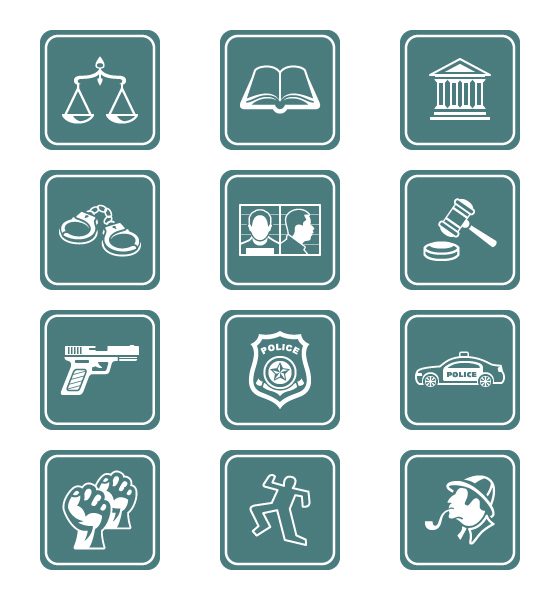 The Interests of Criminal Justice
The Interests of Criminal Justice
In rejecting the FPD’s requests to withdraw or to stay the proceedings against Mr. Vue pending appeal, the judge also criticized “a certain few [assistant federal public defenders’] increasingly common practice of filing numerous, boilerplate motions for extensions of time,” which, in at least one prior case involving the FPD, had kept a criminal defendant incarcerated for a longer period than his actual sentence required. Judge Schwab noted that in the Vue case, the FPD had filed nine motions for time extensions over a period of almost a year, threatening Mr. Vue’s and the public’s right to a speedy trial, and that further delays ran a similar risk of Mr. Vue serving time beyond his sentence.
The presence of independent counsel (without withdrawal by the FPD), the judge found, therefore not only protected the FPD against breach of its professional duty but also protected the defendant’s rights and served the interests of justice by allowing sentencing to proceed more quickly.
Prophylactic Recusal
After Judge Schwab denied its requests to withdraw, the FPD filed motions in 21 other criminal cases being presided over by the judge. The FPD requested that Judge Schwab recuse himself from the cases because of alleged bias shown by the judge in the Vue case against the FPD office. In his initial response, Judge Schwab offered to recuse himself from those cases, provided that the FPD submit an affidavit from each defendant that the defendant had read and approved the FPD’s request. The U.S. Attorney’s Office requested that the judge reconsider.
In subsequently ruling on the motions for disqualification, Judge Schwab looked to 28 U.S.C. § 455, the statute governing disqualification of federal judges, and found that “no reasonable observer … would find any bias or lack of impartiality . . . toward the [FPD] or any of the dedicated and professional Assistant Public Defenders in that Office, let alone toward any of their clients.” Lack of bias notwithstanding, Judge Schwab also held that the circumstance “calls for unusual measures to prevent what has real potential to disrupt the fair and orderly administration of justice.” The judge then voluntarily recused himself from 17 of the 21 cases, and from all future criminal cases involving the FPD through the end of 2011.
In three of the four cases from which the judge did not recuse himself, he found it against public interest and the “prudent use of judicial resources” to do so. Appeals in those three cases are currently pending before the Third Circuit Court of Appeals; all three appeals concern, in part, the denial of the FPD’s motions to disqualify. In the fourth case, new counsel was appointed for the defendant and the FPD was allowed to withdraw.

 An omission, or failure to act, is a crime only where the law imposes an affirmative duty to act. Historically, the law has been reluctant to impose such duties. Yet in some instances, the law does compel action, such as when imposing a duty to report. The recent scandal at Penn State has brought this duty into sharper focus. (
An omission, or failure to act, is a crime only where the law imposes an affirmative duty to act. Historically, the law has been reluctant to impose such duties. Yet in some instances, the law does compel action, such as when imposing a duty to report. The recent scandal at Penn State has brought this duty into sharper focus. ( None of this is to say that the absence of a legal duty to act aligns with the absence of a moral duty to act. Although the law is generally silent on penalizing omissions, oftentimes highly publicized events that the public finds morally reprehensible lead to calls for imposing legal duties to act. For example, the high-profile accounting scandals at companies such as Enron and WorldCom spurred the passage of the
None of this is to say that the absence of a legal duty to act aligns with the absence of a moral duty to act. Although the law is generally silent on penalizing omissions, oftentimes highly publicized events that the public finds morally reprehensible lead to calls for imposing legal duties to act. For example, the high-profile accounting scandals at companies such as Enron and WorldCom spurred the passage of the  In an effort to deal with the ever increasing misuse of social media at trial, the California Legislature amended the criminal contempt definition to include juror misconduct as outlined below.
In an effort to deal with the ever increasing misuse of social media at trial, the California Legislature amended the criminal contempt definition to include juror misconduct as outlined below.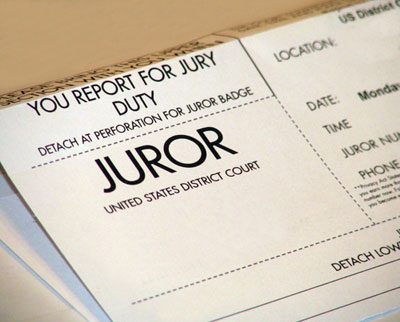 By Benjamin E. Zuckerman
By Benjamin E. Zuckerman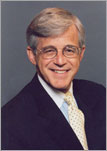

 After publishing
After publishing 
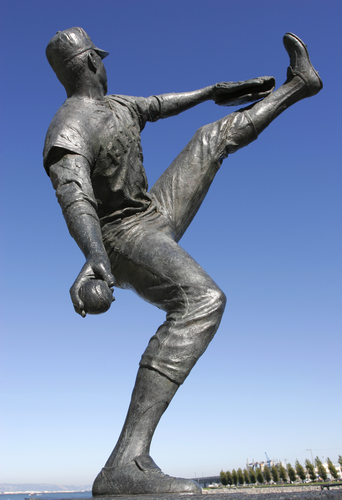 Less than two months ago, U.S. District Court Judge Reggie Walton declared a mistrial in the Roger Clemens case after the prosecutors played an inadmissible video clip to the jury. Judge Walton said the experienced prosecutors made a mistake that a “first-year law student” would not make. Judge Walton will determine whether Roger Clemens may be prosecuted again or whether he is protected by the 5th Amendment’s “Double Jeopardy Clause.” Clemens would be tried on the same criminal charges (perjury and obstruction of justice) and “jeopardy” had attached when the jury was impaneled and sworn in.
Less than two months ago, U.S. District Court Judge Reggie Walton declared a mistrial in the Roger Clemens case after the prosecutors played an inadmissible video clip to the jury. Judge Walton said the experienced prosecutors made a mistake that a “first-year law student” would not make. Judge Walton will determine whether Roger Clemens may be prosecuted again or whether he is protected by the 5th Amendment’s “Double Jeopardy Clause.” Clemens would be tried on the same criminal charges (perjury and obstruction of justice) and “jeopardy” had attached when the jury was impaneled and sworn in.  The prosecutors were wise to accept responsibility, express remorse for their error and likely promise to do a better job with their videos at the next trial. Sounds a lot like a criminal sentencing hearing. What the prosecutors did not do is attempt to blame others, make a host of excuses for playing the video clip or, apparently, lie about what happened.
The prosecutors were wise to accept responsibility, express remorse for their error and likely promise to do a better job with their videos at the next trial. Sounds a lot like a criminal sentencing hearing. What the prosecutors did not do is attempt to blame others, make a host of excuses for playing the video clip or, apparently, lie about what happened.  Something has changed dramatically about the way we communicate: we don’t talk to one another. We text, tweet, “like”, and comment as an alternative to speaking and listening. Why speak when we can merely type? Professionally, we email rather than go through the emotional rollercoaster of having a dialogue with clients, colleagues, or adversaries. My favorite is leaving a voicemail message for someone and receiving an email reply asking “what’s up?” Genius!
Something has changed dramatically about the way we communicate: we don’t talk to one another. We text, tweet, “like”, and comment as an alternative to speaking and listening. Why speak when we can merely type? Professionally, we email rather than go through the emotional rollercoaster of having a dialogue with clients, colleagues, or adversaries. My favorite is leaving a voicemail message for someone and receiving an email reply asking “what’s up?” Genius! 

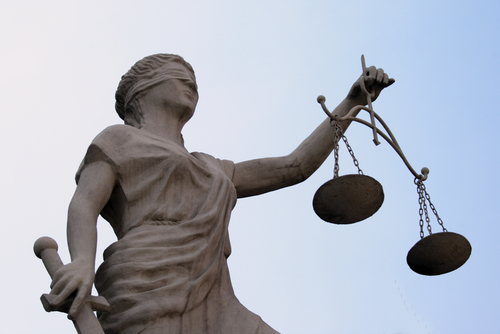 Was it justice or merely a resolution? An Alford plea is more of a settlement than the satisfaction of justice for either side. The state was faced with a tough and costly retrial against a well-prepared and devoted defense team. There was strong likelihood of the defendants suing the state, which would have resulted in legal expenses and the possibility of a huge monetary award. The men maintain their innocence but plead guilty to a heinous crime and, for the families, there is no certainty that the killer(s) were brought to justice.
Was it justice or merely a resolution? An Alford plea is more of a settlement than the satisfaction of justice for either side. The state was faced with a tough and costly retrial against a well-prepared and devoted defense team. There was strong likelihood of the defendants suing the state, which would have resulted in legal expenses and the possibility of a huge monetary award. The men maintain their innocence but plead guilty to a heinous crime and, for the families, there is no certainty that the killer(s) were brought to justice. 1. What is “Civic Innovation and Participation” for the City of Philadelphia? It’s what the City and its partners are doing at the intersection of civic participation, technology and government innovation to cultivate a more open, participatory, and transparent local government.
1. What is “Civic Innovation and Participation” for the City of Philadelphia? It’s what the City and its partners are doing at the intersection of civic participation, technology and government innovation to cultivate a more open, participatory, and transparent local government. 7. You’ve devoted your life to the City, why?
7. You’ve devoted your life to the City, why? 